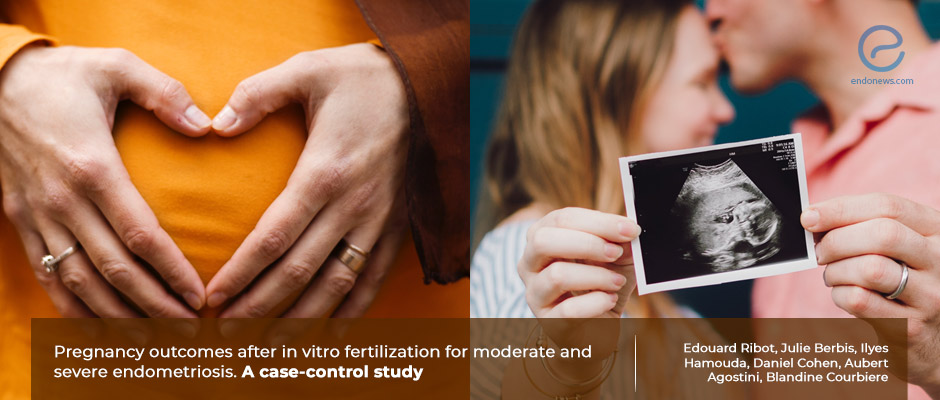Placenta praevia and cesarean section more common in patients with ART for Endometriosis
Jan 19, 2022
The link between endometriosis and obstetrical complications
Key Points
Highlights:
- Caution is required when administering assisted reproductive techniques (ART) for endometriosis patients, due to possible poor obstetric outcomes.
Importance:
- Women having severe endometriosis undergoing ART treatment should be informed about adverse obstetrical outcomes including placenta praevia and cesarean section.
What’s done here?
- This multicenter retrospective case-control study was performed in women who underwent ART including in vitro fertilization (IVF) or intracytoplasmic sperm injection (ICSI).
- Severe endometriosis patients' group matched to a group without known endometriosis based on age, body mass index, and smoking status.
- A positive level of serum beta hCG level on the 14th day after embryo transfer was defined as (+)pregnancy test.
- All obstetrical complications at delivery were assessed as primary outcome measures.
- Postpartum hemorrhage, placenta praevia, cesarian section, and neonatal hospitalization were evaluated as secondary outcomes.
Key results:
- A total of 240 women constituted the study population, 80 singleton IVF-pregnant endometriosis women compared to 160 singleton IVF pregnant women.
- The rates of fresh or frozen embryo transfers, gestational age at delivery, and birth weight were similar in both groups.
- Patients with endometriosis underwent IVF treatment more frequently than the control group.
- Placenta praevia and cesarean section rates were also significantly higher.
- The presence of endometriosis, higher body mass index, and birth at an earlier gestational age are the main risk factors associated with poor obstetric outcomes.
Strengths and Limitations
- Retrospective design, small sample size, and underdiagnosis of endometriosis in the control group are the limitations of the study.
- Inclusion of only severe endometriosis and matching of participants based on maternal demographic characteristics represent the strengths of this study.
Lay Summary
Even though endometriosis is known to be associated with infertility, these women still have a chance to get pregnant spontaneously or by assisted reproduction techniques (ART) with the aid of recent technological developments. A
It has also been shown that endometriosis patients are likely to experience poor obstetric outcomes. Ribot et al, from France, recently published a retrospective study entitled “Pregnancy outcomes after in vitro fertilization for moderate and severe endometriosis. A case-control study” in the 'Journal of Gynecology Obstetrics and Human Reproduction", to clarify this issue.
The authors evaluated obstetric outcomes in women with advanced-stage endometriosis who underwent ART treatments, in vitro fertilization (IVF), or intracytoplasmic sperm injection (ICSI), comparing them with those having no endometriosis. Participants were comparable regarding their demographic and clinical characteristics. There was also no significant difference between groups regarding rates of fresh or frozen embryo transfers, gestational age at delivery, and birth weight. Placenta praevia and cesarean section were significantly higher in endometriosis patients whereas postpartum hemorrhage rate, neonatal hospitalization rate, and the preterm birth rate did not differ significantly among the groups. The presence of endometrioma, higher body mass index and birth at an earlier gestational age were independent risk factors for adverse obstetric outcomes.
“ART pregnancy in a context of severe endometriosis should be considered at risk of adverse obstetrical outcomes” the authors concluded.
Research Source: https://pubmed.ncbi.nlm.nih.gov/34844027
endometriosis assisted reproductive technologies in vitro fertilization pregnancy outcome postpartum hemorrhage

